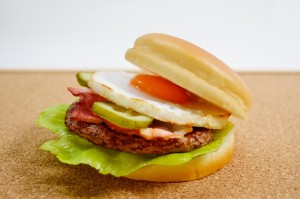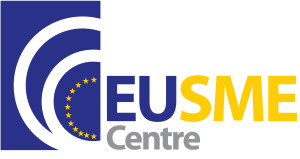In their latest publication the EU SME Centre examines food additives, outlining detailed requirements for European businesses wishing to import food products into China. Below is an introduction to these guidelines.
 Sensitivity to food additives in China is part of the widespread concern over food safety, particularly as the majority of reported food safety incidents are the result of criminal contamination with illegal additives—as was the case in the melamine scandal of 2008. More insidious is the general public’s fear that in order to reduce costs, Chinese producers add more chemicals than are necessary. The average packaged food in China will often contain more additives than its equivalent in Europe.
Sensitivity to food additives in China is part of the widespread concern over food safety, particularly as the majority of reported food safety incidents are the result of criminal contamination with illegal additives—as was the case in the melamine scandal of 2008. More insidious is the general public’s fear that in order to reduce costs, Chinese producers add more chemicals than are necessary. The average packaged food in China will often contain more additives than its equivalent in Europe.
In an attempt to address these concerns Chinese regulators have a strict focus on food additives. However, European producers should have little difficulty in complying with China’s food additive requirements, including labelling, as approved additives are harmonised with international standards.
Both China and the European Union use the Codex Alimentarius international standards as the basis of their food additive legislation. Codex Alimentarius is based on advice from the Joint Expert Committee for Food Additives of the World Health Organisation and the Food and Agriculture Organisation, both organs of the United Nations.
The high level of harmony between European and Chinese regulations for permitted food additives and their maximum quantities or residue levels means that European exporters can expect a high level of certainty that they fully comply with Chinese requirements. International food additives standards are updated regularly; the Ministry of Health therefore also occasionally releases updates to its regulations.
At the time of writing the latest update was in 2012. Exporters need to be aware that the information must be obtained from the most recent update, which refers to the 2011 regulations, rather than the regulations themselves. European food with permitted additives which are labelled correctly, and meet all other requirements not related to food additives, can expect to pass through customs and quarantine and onto the Chinese market.
Foods that contain additives that are not included in China’s lists must be approved by the Chinese authorities. Requests to add new food additives are usually undertaken by Chinese industy bodies. It is rare for foreign corporations to undertake this process, but they are permitted to do so.
The WTO Agreement on the Application of Sanitary and Phytosanitary Measures (the SPS Agreement) references Codex Alimentarius as the international consensus on food safety standards. As WTO members, both China and the European Union are bound to be guided by these common standards. Though countries are permitted to implement additional guiding rules to reflect local conditions, they can be challenged if they are not scientifically justified.
China
In accordance with international practice, Chinese food additives regulation is based on the principle that they are technically necessary and proven to be safe. Food additives can only be used if they are covered in the national food safety standards, within the list of allowable food additives of the Ministry of Health, and within the scope of allowed applications and dosage levels. Food additives that do not meet these criteria need to be registered as new food additives.
Food additives should not be intended to cover up food rancidness, quality defects (in the food itself or during processing) or be used for adulteration or falsification, or reduce the nutritional value of food. Levels of food additives should be as low as possible. Unless a residue level is specified, food processing aids used in the course of food processing should be removed.
Europe
Permitted food additives are listed in Annex II of Regulation (EC) No 1333/2008. The Regulation brings together, in a single legislative act, all types of food additives, including colours and sweeteners. The regulation also lists 12 substances or types of substance which are not considered to be food additives.
Under European legislation, food additives must be authorised before they can be used in foods. Since 2002, the European Food Safety Authority (EFSA) has overseen the regulation of food additives. Authorisation follows safety assessment by the EFSA.
The present regulatory framework has its origins in the reforms of December 2008, which, when they entered into force in January 2010, consolidated all food additives legislation previously covered by different directives.
If you would like to read these guidelines in full please click here to download a copy.
 The EU SME Centre assists European SMEs to export to China by providing a comprehensive range of free, hands-on support services including the provision of information, confidential advice, networking events and training. The Centre also acts as a platform facilitating coordination amongst Member State and European public and private sector service providers to SMEs. The EU SME Centre is a project funded by the European Union.
The EU SME Centre assists European SMEs to export to China by providing a comprehensive range of free, hands-on support services including the provision of information, confidential advice, networking events and training. The Centre also acts as a platform facilitating coordination amongst Member State and European public and private sector service providers to SMEs. The EU SME Centre is a project funded by the European Union.


a very professional report, and comprehensive understanding to chinese regulation of food additive. What a pity, chinese reader are not allowed to access EU SME CENTRE, can’t download the guideline of EU food additive. The more understanding of each other, the more business opportunities.
Currently, it is not mature for chinese regulation and market of food additive in China. For european exportation business, may encounter different explanation varied with ports, CIQ, registration.